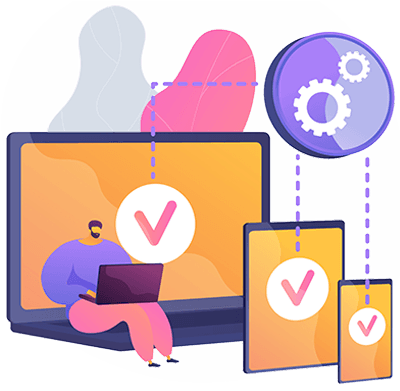In today’s rapidly evolving business landscape, embracing cutting-edge technologies is not just an option – it’s a necessity for staying competitive and relevant. Among these transformative technologies, Artificial Intelligence (AI) stands out as a game-changer that has the potential to revolutionize the way companies operate, make decisions, and interact with customers. This article will provide you with a comprehensive guide on how to effectively utilize AI for your company’s growth and success.
Introduction
Artificial Intelligence has transcended its status as a futuristic concept and is now a reality that businesses of all sizes can harness for their advantage. Whether you’re a small startup or a well-established corporation, AI offers a multitude of opportunities to streamline operations, enhance customer experiences, and drive innovation.
Understanding AI: A Brief Overview
At its core, AI refers to the development of computer systems that can perform tasks that would typically require human intelligence. This includes activities like problem-solving, decision-making, natural language processing, and even creative thinking. AI systems can analyze vast amounts of data, recognize patterns, and continuously learn and improve over time.
Benefits of AI for Businesses
The adoption of AI can lead to a wide range of benefits for businesses:
- Enhanced Efficiency: AI-powered automation can handle repetitive tasks, freeing up human resources for more strategic endeavors.
- Data-Driven Insights: AI algorithms can uncover valuable insights from data, enabling informed decision-making.
- Personalized Customer Experiences: AI enables businesses to deliver tailored experiences based on customer preferences and behaviors.
- Predictive Analytics: AI models can forecast trends, helping businesses proactively respond to changes in the market.
Implementing AI: Step-By-Step Guide
4.1. Defining Your Objectives
Before diving into AI implementation, clearly define your company’s objectives. Determine the specific problems you aim to solve or opportunities you wish to explore through AI.
4.2. Data Collection and Preparation
AI thrives on data. Collect and clean relevant data, ensuring it’s accurate, complete, and properly structured.
4.3. Choosing the Right AI Tools
Select AI tools or platforms that align with your objectives. Whether it’s machine learning, natural language processing, or computer vision, choose tools that suit your needs.
4.4. Model Training and Testing
Train your AI models using the prepared data. Regularly test and refine the models to ensure optimal performance.
4.5. Integration and Deployment
Integrate AI solutions into your existing systems and processes. Ensure seamless deployment and monitor performance closely.
AI Use Cases Across Industries
5.1. Marketing and Customer Insights
AI can analyze customer data to provide insights into purchasing behaviors, enabling targeted marketing campaigns.
5.2. Operations and Supply Chain Management
Optimize inventory management, demand forecasting, and logistics through AI-driven insights.
5.3. Finance and Risk Management
AI algorithms can assess financial risks, detect fraud, and enhance investment strategies.
5.4. Human Resources and Talent Acquisition
Streamline recruitment, analyze resumes, and predict employee retention using AI.
Overcoming Challenges in AI Implementation
6.1. Data Privacy and Security
Ensure robust data protection measures to maintain customer trust and comply with regulations.
6.2. Change Management and Workforce Adaptation
Prepare your workforce for AI integration through training and communication.
6.3. Ethical Considerations
Address ethical dilemmas related to AI, such as bias in algorithms and job displacement.
Measuring AI’s Impact: Key Metrics to Track
Monitor metrics like cost savings, customer satisfaction, and process efficiency to gauge the impact of AI initiatives.
Future Trends in AI
As AI continues to evolve, anticipate advancements in areas like explainable AI, AI-powered creativity, and increased human-AI collaboration.
Conclusion
Embracing AI isn’t just a technological leap; it’s a strategic decision that can reshape your company’s future. By carefully defining objectives, implementing AI tools, and addressing challenges, your company can unlock the immense potential that AI offers.










